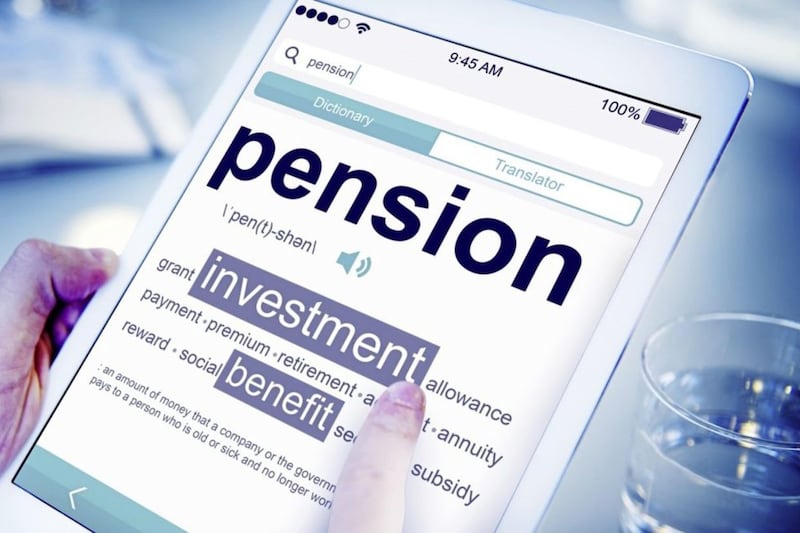Life, as they say, is a journey, not a destination – and this is particularly true of our financial life.
I was thinking about that this week, when I found out that one of my youngest clients, a financially savvy young woman in her early 20s, had hesitated to come to see me sooner, because she thought financial advisers wouldn’t be interested in someone with just a month’s wages to invest (about £1,000).
She could not have been more wrong! Your early 20s is the very time to begin your financial journey, by contacting a professional adviser.
We are in business to help our clients make the right decisions at every stage of that journey, which is why we’re delighted to see you walk through our door at the beginning of your career.
Besides, sitting down with us for an initial discussion to see how we could help you is completely free of charge.
This lady was interested in how to save her £1,000 for the short term, so that it would be accessible should she need it for some financial emergency. Anyone who owns a car will know what I’m talking about.
Cars sense when we have a little extra cash, and they give up, or something falls off to make sure we don’t keep our extra cash for long.
Our conversation therefore began by discussing options for short and medium-term saving. The two main options are, of course, a standard bank account or an individual savings account (ISA).
ISAs come in two main types: the cash ISA and the stocks and shares ISA. The advantage over the standard bank account it that the growth in your ISA is not taxed.
No matter how much you build up in it over the years, it is beyond the reach of the taxman’s greedy fingers.
In the cash ISA, your money is immediately accessible, in fact some cash ISAs actually come with an ATM card.
Then there’s the stocks and shares ISA, which does what it says: invests your money in the stock markets, and you trade off a higher risk against the hope of a higher return.
Ideally, your money should be left in this ISA for at least 10 years. Stock market investments usually outperform cash – often by a long way – if you can leave your money in for at least that 10-15 year threshold.
Then there’s long-term saving, of course we are talking pension saving. The great advantage of pension saving is tax relief.
If you pay tax at the basic rate of 20 per cent, then for every £80 you save into a pension, the government tops it up to £100.
Of course, your money is locked away until you reach retirement age, which for a young person today could well have risen to 70 by the time they come to retire. A pension is the best long-term saving option of all.
Some time at this part of your journey, you might marry and start a family. That’s a real game-changer, and it suggests many financial steps you had not needed before.
For instance you may buy your first home. You’ll be glad you started your ISA saving so early; it could well come in handy now, going towards a tidy little deposit on your house.
If a baby arrives, you might consider insuring yourself so that, should anything happen to you, your family would have some financial security to replace the loss of your income, and at least not have to worry about money at a time of great loss.
Obviously you will think of life insurance, but there’s more to it than that. This year’s average life expectancy in the UK is 81.65 years, and so when you think about it, if we have to stop work during our working years, it’ll more likely be due to serious illness, rather than death.
This is why I advise people also to consider critical illness insurance, which covers you if you are incapacitated by a severe condition such as cancer, stroke, heart attack, MS, or the need for major surgery.
If that happens, who knows if you’ll ever be able to return to work?
Again, the insurance has you and your family covered, and considering that the average age for claims is 47, it’s not just a concern for older people.
Before we leave the subject of your new baby, did you know you can set up a pension for them as soon as they are born?
With the ‘children’s stakeholder pension’ anyone – you, uncles and aunts, granny and granddad – can put money away for them, and it attracts tax relief like an adult pension.
Just think how it will grow over six or seven decades, and what peace of mind it will give your child as they build up their own state and workplace pensions as well.
Towards the end of your financial life, when you finally hang up your workboots and retire, you may take out 25 per cent of your pension tax-free, and then either draw down the remainder over time, to spend or re-invest. Again, financial advice is crucial to avoid a hefty tax bill and to re-invest wisely.
At this point, if you prefer the security of a guarantee, you may opt to use part or all of your savings to buy an annuity, which gives you a guaranteed monthly income for life.
There are many variationa, one that is popular is the joint life annuity, which continues to make payments to your spouse/partner if you die first.
As you see, making the right decisions as you go is essential - and it doesn’t happen by itself.
Are you ready to begin that journey by calling in for a (free) chat, even at the very beginning of your career?
It’s never too early for good advice!
Michael Kennedy is an independent financial adviser and pensions specialist and can be contacted on 028 71886005. Further information on Facebook at Kennedy Independent Financial Advice or at www.mkennedyfinancial.com







